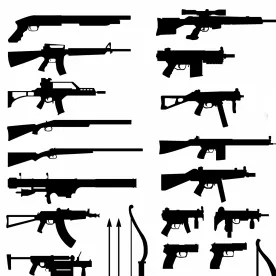Currently, in the state of Ohio, in order to obtain a concealed handgun license, which is valid for five years, an Ohio resident must submit an application to the county sheriff, pay an initial $67 fee, pass a background check, and meet the minimum educational requirements, which include completing eight hours of training (at least two of which must be in-person training) and passing a written test.
Effective June 13, 2022, Ohio Senate Bill (S.B.) No. 215, which Governor Mike DeWine has already signed into law, will permit a “qualifying adult” to legally carry, possess, or conceal a handgun without a license, background check, or training requirements:
A person who is a qualifying adult shall not be required to obtain a concealed handgun license in order to carry in this state … a concealed handgun that is not a restricted firearm. Regardless of whether the person has been issued a concealed handgun license, … a person who is a qualifying adult may carry a concealed handgun that is not a restricted firearm anywhere in this state in which a person who has been issued a concealed handgun license may carry a concealed handgun.
A “qualifying adult” means a person who is twenty-one years of age or older, who is not legally prohibited from possessing or receiving a firearm under federal law or state law, and who satisfies various criteria listed in Ohio Revised Code (R.C.) 2923.125. A “restricted firearm” means a firearm that is a “dangerous ordnance” or otherwise prohibited under Ohio law.
In general, the law still permits employers to establish, maintain, and enforce policies prohibiting individuals from carrying handguns or firearms in company buildings or within company vehicles. S.B. 215 specifically provides as follows:
Nothing in this section [R.C. 2923.126, added by S.B. 215] shall negate or restrict a rule, policy, or practice of a private employer that is not a private college, university, or other institution of higher education concerning or prohibiting the presence of firearms on the private employer’s premises or property, including motor vehicles owned by the private employer.
Further, the new law states that private employers “shall be immune from liability in a civil action for any injury, death, or loss to person or property that allegedly was caused by or related to a [person] bringing a handgun onto the premises or property of the private employer, including motor vehicles owned by the private employer, unless the private employer acted with malicious purpose.”
Employers may be interested to learn that S.B. 215 does not mention or reference R.C. 2923.1210, which prohibits employers from establishing, maintaining, or enforcing policies or rules that restrict any individual with “a valid concealed handgun license from transporting or storing a firearm or ammunition” if: “(1) [e]ach firearm and all of the ammunition remains inside the person’s privately owned motor vehicle while the person is physically present inside the motor vehicle; or … is locked within the trunk, glove box, or other enclosed compartment or container within or on the person’s privately owned motor vehicle; [and] (2) [t]he vehicle is in a location where it is otherwise permitted to be.” R.C. 2923.1210(C) also grants certain employers immunity from liability as set forth below:
No business entity, property owner, or public or private employer shall be held liable in any civil action for damages, injuries, or death resulting from or arising out of another person’s actions involving a firearm or ammunition transported or stored pursuant to division (A) of this section including the theft of a firearm from an employee’s or invitee’s automobile, unless the business entity, property owner, or public or private employer intentionally solicited or procured the other person’s injurious actions.
Accordingly, under Ohio’s new law, effective June 13, 2022, because all qualifying adults have all the same rights that are granted to individuals who have been issued concealed handgun licenses, employers will not be permitted to enforce rules prohibiting such individuals—including those without concealed handgun licenses—from transporting or storing firearms or ammunition under the conditions described above.
Employers may want to consider reviewing and revising their employee handbooks or applicable policies to ensure compliance with this new law.





 />i
/>i

